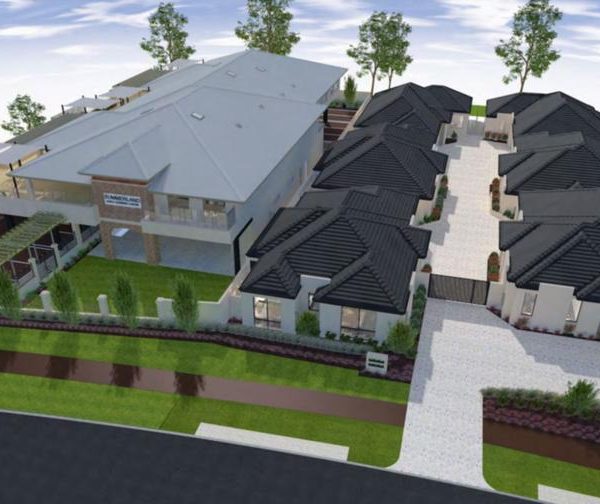“Sad and embarrassing” – what new City of Joondalup plans mean for ECEC developers

Strategic Property Group and Strategic Settlements Managing Director Trent Fleskens has described a recent City of Joondalup decision to restrict the development of early childhood education and care (ECEC) centres in residential areas as “sad and embarrassing” and one which “threatens to kill the future of childcare services”.
Mr Fleskens comments, shared in an article appearing in Perth Now, were made following a Council meeting held last week which saw City officers recommend changes to Council policy in response to a petition requesting childcare centres be prevented from being built adjoining or opposite a residential property, in a bid to mitigate negative impacts on nearby homes.
“Who would have thought that in the year 2022, when a policy amendment about childcare is being deliberated in the City, we aren’t deliberating on how we can make the provision of the service more accessible for future generations, but we are instead deliberating on how we can kill childcare altogether,” Mr Fleskens was quoted as saying.
“There are thousands upon thousands of young mums, not engaged in this forum and totally unaware of this amendment, who would be ecstatic if they were able to climb from number 100 on the waiting list at their local centre and get their kids into a fifth day of childcare a week so they can get back into work and contribute to the community,” he added.
Suggested amendments put forward included:
- Centres in residential zones should share a boundary with a non-residential property to provide “at least one boundary”
- Consideration be given to the location of “potential noise-generating activities” such as outdoor play areas and car parking
- Services be limited to a maximum of 50 children to reduce the size, scale, noise and traffic.
In making his comments, Mr Fleskens described himself in Perth Now as being “a 31-year-old male without kids trying to save the future of childcare in the City” and urged the council not to implement the 50-place maximum or the requirement to share a boundary with a non-residential property, saying these two changes were not economically viable.
“The development of a new 50-place centre anywhere in the City on an average site will result in a $900,000 loss to a developer, meaning it will never happen,” he said.
His two sisters manage childcare centres in the City, and Mr Fleskens used this as a frame of reference when saying there is a need for more modern services, with centres like Nido having 80-100 children on their waitlist.
Resident perspectives
Residents who campaigned for change said finding a balance between the need for ECEC in the community and the rights of residents was an important one.
“Just because a paid report says a development won’t affect someone’s amenity, doesn’t mean in reality it won’t,” one respondent said, while another said developers should stay out of residential areas and restrict their builds to commercial land.
An application for a two-storey Nido centre in Kingsley that was refused last year and is currently being appealed at the State Administrative Tribunal was discussed, with respondents telling the City that it is “overwhelmingly clear” from the consultation that ratepayers want these changes approved so adjoining neighbours are not negatively impacted.
According to a council report, the City received 68 submissions during public consultation in relation to the centre, with 54 in support, 12 objections and two neutral, and the feedback showed particular support for centres to adjoin a non-residential land use and to have a cap of 50 children.
Council acknowledges changes will be “at the more restrictive end”
Planning and Community Development Director Chris Leigh conceded the changes would put the City’s childcare policy “at the more restrictive end when compared to similar local governments”, noting that despite this there were still 369 residential zoned lots within the City that would meet the requirements of the new policy.
Cr John Logan said the City had undergone a “thorough consultation process and the vast majority of those who engaged with the City have told us quite clearly they support the changes”.
He also said policies were “not set in stone” and if it was determined the changes were not working, they could be revised again.
Mayor Albert Jacob, one of only two to vote against the changes, said he had “some concerns” with the “very restrictive policy”.
He reminded councillors that with most of the applications, the Metro Outer Joint Development Assessment Panel was the decision maker, and it would only be required to consider the City’s policy alongside many other documents.
“The more restrictive the policy, I think the natural response will be to give it less regard. Flexibility is our best approach,” he said.
Mr Jacob also said childcare centres “must go somewhere”.
To read the original coverage of this story, as produced by Perth Now, please see here.
Popular

Policy
Practice
Provider
Quality
NSW Government launches sweeping reforms to improve safety and transparency in early learning
2025-06-30 10:02:40
by Fiona Alston

Quality
Provider
Policy
Practice
WA approved provider fined $45,000 over bush excursion incident
2025-07-01 07:00:01
by Fiona Alston

Workforce
Policy
Quality
Practice
Provider
Research
ECEC must change now, our children can’t wait for another inquiry
2025-07-02 07:47:14
by Fiona Alston













